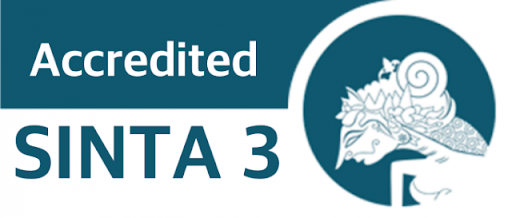Pengaruh Komunikasi Organisasi dan Disiplin Kerja terhadap Kinerja Karyawan pada Kedai Kopi Kulo Samarinda
Influence of Organizational Communication and Work Discipline on Employee Performance at Samarinda Coffeeshop Kulo
DOI:
https://doi.org/10.37680/ijief.v1i2.1078Keywords:
Employee Performance, Organizational Communication, Work DisciplineAbstract
Each company aims to develop the company to its full potential. For goals to be achieved smoothly, leaders need to pay attention to the performance of their employees. The implementation of organizational communication and work discipline will help control all actions and behavior of employees to always comply with the provisions that have become company rules. This study aims to see the effect of communication and work discipline on employee performance at the Kulo coffee shop in Samarinda. Organizational Communication (X1) and Work Discipline (X2) are used as independent variables while Employee Performance (Y) is the dependent variable. The type of research used is quantitative research with a survey research design. The data analysis used multiple linear regression techniques using SPSS version 22. The population in this study were all employees of Kedai Kopi Kulo Samarinda who got 30 employees and the sampling method saturated 30 respondents. The results of this study can be variable communication variables Organization (X1) and Work Discipline (X2) together (simultaneously) have a significant effect on Employee Performance (Y) at the Kulo Coffee Shop in Samarinda. With the work result of 0.650 which is at the level of a strong relationship, the results of the determination are 42.3% of the Employee Performance variable (Y) and the results of the Fount 9.994> Fable 3.35 then Ho is rejected and Ha is accepted, namely between the Work Communication variable (X1) and Work Discipline. (X2) has a positive effect simultaneously on Employee Performance (Y). For the leadership of the Kulo Coffee Shop, they can open discussion forums for employees, such as briefings every time so that the aspirations given by the leadership can be well received by employees. employee discipline level can apply rewards and punishments.
Downloads
Published
How to Cite
Issue
Section
License
Copyright:
An author who publishes in Indonesian Journal of Islamic Ekonomics and Finance agrees to the following terms:
- Author retains the copyright and grants the journal the right of first publication of the work simultaneously licensed under a Creative Commons Attribution-NonCommercial 4.0 International License that allows others to share the work with an acknowledgment of the work's authorship and initial publication in this journal.
- Author is able to enter into separate, additional contractual arrangements for the non-exclusive distribution of the journal's published version of the work (e.g., post it to an institutional repository or publish it in a book) with the acknowledgment of its initial publication in this journal.
- Author is permitted and encouraged to post his/her work online (e.g., in institutional repositories or on their website) prior to and during the submission process, as it can lead to productive exchanges, as well as earlier and greater citation of the published work (See The Effect of Open Access).
License:
-
Attribution — You must give appropriate credit, provide a link to the license, and indicate if changes were made. You may do so in any reasonable manner, but not in any way that suggests the licensor endorses you or your use.
-
NonCommercial — You may not use the material for commercial purposes.
-
No additional restrictions — You may not apply legal terms or technological measures that legally restrict others from doing anything the license permits.
You are free to:
- Share — copy and redistribute the material in any medium or format
- Adapt — remix, transform, and build upon the material

This work is licensed under a Creative Commons Attribution-NonCommercial 4.0 International License.



.png)







